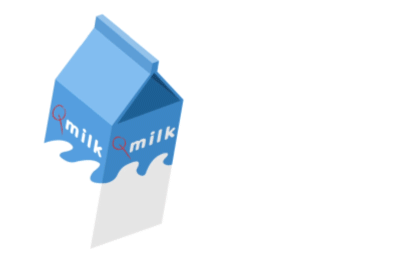CHANGE IN ASIA
With Greenpeace reporting that global textile production doubled between 2000 and 2017, fast fashion has obviously driven the bulk of growth in the textile market. While China remains the world's largest exporter of textiles, the rising popularity of alternative materials is creating potential for smaller players to step in.
Vietnam's manufacturers are attempting to move away from simple processing (Cut, Make and Trim) towards dealing directly with foreign designers in producing garments – particularly for their top importer, the US. However, they face increasing competition from Bangladesh and Cambodia, who enjoy favorable access to several apparel markets and lower working wages.
The textile industry in India, dominated by small, independent players, is similarly threatened and is struggling to adapt to current trends, lacking access to the more expensive man-made textiles which are growing in demand. Get into the inner workings of Fast Fashion in our comprehensive guide.
TIP: Take time to consider what's important to you, and your customers – then shop around.
No matter where it happens, textile manufacturing uses huge quantities of harmful chemicals in fabric treatment, including dyes, additives and stabilizers. Companies such as Puma and Nike are now creating their own chemical blacklists to find cleaner alternatives, pressured into doing so to maintain their global reputations. However, the rise of online shopping means smaller brands' supply chains go unchecked.
Beyond the factory, a typical 5kg laundry load releases six million microfibers into the ocean according to IMechE. Awareness is therefore being raised around using mesh laundry bags to catch threads, as well as installing filters on washing machine waste pipes. This creates further business potential for such by-products within the industry.
For some further reading, take a look at our guide on leading your business into a carbon neutral future.
TIP: Harmful chemicals could also be harmful to your sales – use them at your peril.
MAKING FABRICS FROM FOOD
Due to the extreme environmental impact of microfibers, there is a growing global market for sustainable textile alternatives. For example, while the US eco-apparel market has already reached US$5bn, a report by British NGO Fashion Revolution found that 38% of consumers across Germany, UK, France, Italy and Spain consider a clothing brand’s social and environmental impact in their purchase decisions, making Europe a key target for sustainable suppliers.

PINEAPPLE HANDBAGS
As veganism grows in popularity, consumers are seeking out alternatives to leather. These include pineapple leaves, which are used to produce a natural, non-woven textile known as Piñatex.
In the Philippines, pineapple plantations already take up 10% of agricultural land. The banana fiber has also proven suitable for tea bags, car tires, and even Japanese Yen notes.
TIP: One man's trash is another man's treasure – do your research into plant-based alternatives.

LIFE VESTS GROW ON TREES
Startup Flocus is offering a sustainable fiber from the Kapok tree's non-food fruit crop, grown in sub-tropical countries. As a floating, hydrophobic fiber, it is appropriate for use in life-vest fillers as well as sleeping bag down insulation. However, the process requires Kapok fibers to be blended with other longer fibres such as recycled polyester, and is currently too costly to go mainstream.
TIP: Stay on top of the latest innovations and show your green credentials.

USING MILK FOR MEDICAL TEXTILES
QMILK is turning German farmers' unsold milk into a chemical-free fabric, complete with anti-microbial properties. This makes it appropriate for medical textiles including surgical drapes and tapes, where common disposable ones produce 80% more waste than reusables. However, the apparel cycle for QMILK fabric currently takes at least two years from development to shop floor, requiring further research.
TIP: Investing time, as well as money, can pay off.
However these new textiles must prove financially sustainable for businesses as well as the environment, with higher costs and lower availability acting as potential barriers. Further education is also needed to teach manufacturers how to use them successfully.

PINEAPPLE HANDBAGS
As veganism grows in popularity, consumers are seeking out alternatives to leather. These include pineapple leaves, which are used to produce a natural, non-woven textile known as Piñatex.
In the Philippines, pineapple plantations already take up 10% of agricultural land. The banana fiber has also proven suitable for tea bags, car tires, and even Japanese Yen notes.
TIP: One man's trash is another man's treasure – do your research into plant-based alternatives.

LIFE VESTS GROW ON TREES
Startup Flocus is offering a sustainable fiber from the Kapok tree's non-food fruit crop, grown in sub-tropical countries. As a floating, hydrophobic fiber, it is appropriate for use in life-vest fillers as well as sleeping bag down insulation. However, the process requires Kapok fibers to be blended with other longer fibres such as recycled polyester, and is currently too costly to go mainstream.
TIP: Stay on top of the latest innovations and show your green credentials.

USING MILK FOR MEDICAL TEXTILES
QMILK is turning German farmers' unsold milk into a chemical-free fabric, complete with anti-microbial properties. This makes it appropriate for medical textiles including surgical drapes and tapes, where common disposable ones produce 80% more waste than reusables. However, the apparel cycle for QMILK fabric currently takes at least two years from development to shop floor, requiring further research.
TIP: Investing time, as well as money, can pay off.
However these new textiles must prove financially sustainable for businesses as well as the environment, with higher costs and lower availability acting as potential barriers. Further education is also needed to teach manufacturers how to use them successfully.
SMART FABRICS
Textiles are not only becoming more sustainable but smarter too, with the tech market transitioning from wearable electronics (where devices are glued onto fabrics) to clothing which incorporates devices into the material itself. With the necessary algorithms readily available, fitness applications anticipate the highest growth – especially in North America, where consumers are known for adopting new technologies.
Kymira have developed the first heart-monitoring Bluetooth t-shirt, inserting specific minerals within its fibers that can detect irregular heartbeats. Conversely, TexDel's system embeds active vitamins, supplements and medications within traditional yarns, such as polyester and nylon. These can then be delivered at a controlled rate into the wearer's body.
TIP: Listen to your head, your heart, and your gut, when making decisions

SMART FABRICS
Textiles are not only becoming more sustainable but smarter too, with the tech market transitioning from wearable electronics (where devices are glued onto fabrics) to clothing which incorporates devices into the material itself. With the necessary algorithms readily available, fitness applications anticipate the highest growth – especially in North America, where consumers are known for adopting new technologies.
Kymira have developed the first heart-monitoring Bluetooth t-shirt, inserting specific minerals within its fibers that can detect irregular heartbeats. Conversely, TexDel's system embeds active vitamins, supplements and medications within traditional yarns, such as polyester and nylon. These can then be delivered at a controlled rate into the wearer's body.
TIP: Listen to your head, your heart, and your gut, when making decisions
BACK TO BASICS
Where fashion houses are skeptical of trying out new textiles or technologies, they are nevertheless increasingly opting for those capable of a longer life. Womenswear label Ace & Jig market themselves as a ‘forever brand’, moving away from fast fashion by selling timeless pieces instead of ones influenced by seasonal trends.
78% of Americans say they feel better when buying sustainable products, echoed by 85% of consumers in Turkey and Brazil. The number even rises to 88% in India, so clearly a product’s values should be positioned at the core of its marketing, in the USA and elsewhere.
TIP: Don't just consider the cost to your customers, consider the value.
78%
OF AMERICANS
88%
OF INDIANS
INDUSTRY CHALLENGES
Innovations in the smart and sustainable sectors of the textiles industry have opened up the market to more players. The sector goes beyond the simple manufacture of cotton, polyester and nylon – though these are still in highest demand.
However, due to the complexity and heightened costs of producing these new textiles, further development is required before they become mainstream. For instance, despite overwhelming interest, the Confederation of British Industry found that ethical fashion only takes up 1% of Europe's clothing market. This number, however, is growing.
Remember to research potential export destinations to see where these new fabrics could fit. And be sure to choose an export partner with native expertise in the destinations you choose

